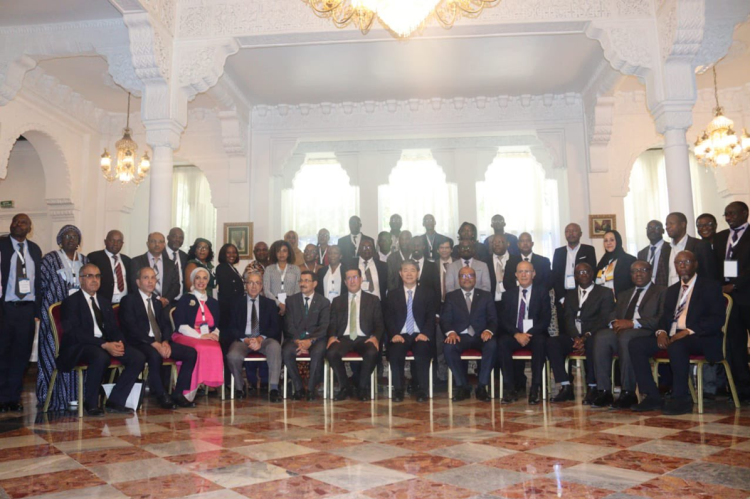With the support of IAEA, National Coordinators to the African Regional Cooperative Agreement for Research, Development and Training Related to Nuclear Science and Technology (AFRA) attended the 34th Technical Working Group Meeting (TWGM) held since the Agreement's establishment in 1990. From 18 to 22 June, the assembled IAEA staff and AFRA National Coordinators (NCs) reviewed programme activities of the last year and shared updates on the development of a new Regional Cooperative Framework (RCF) for 2024-2028.
Hosted by the Government of Algeria and by the Algerian Atomic Energy Commission (COMENA), the TWGM brought together 30 National Coordinators, as well as the AFRA Chair and Chairs of two of AFRA's management committees-the Programme Management Committee (PMC) and the Human Resource Development Committee (HLSC).
Alongside Hua Liu, IAEA Deputy Director General, and Shaukat Abdulrazak, Director of the Technical Cooperation (TC) Division for Africa, the meeting was opened by remarks from the AFRA Chairman, Fidele Ndahayo, by AFRA National Coordinator for Algeria, Mohamed Mahlous, and by the Secretary General of the Ministry of Energy and Mines, Abdelkrim Aouissi.
Central to the deliberations of the meeting participants was the development of a new RCF, a document which aims to address the needs of African Member states at the regional level and to produce greater alignment between the IAEA regional programme for Africa and the African Union's Agenda 2063.

More than 30 AFRA National Coordinators attended the Technical Working Group Meeting to contribute to planning future priorities and initiatives by the Regional Cooperative Agreement. (Photo: IAEA)
"A Taskforce Meeting for the formulation of the new five-year RCF of AFRA for the period 2024-2028, took place recently in Dakar, Senegal," explained DDG Hua Liu. "The new RCF focuses on five technical cooperation thematic areas. It also takes into consideration the Global Development Agenda-especially the UN Sustainable Development Goals (SDGs)."
Several sessions of the week-long TWGM were devoted to the exploration of the RCF's diverse themes, with presentations delivered on education, training and collaboration with African universities by Professor James Kahindi, Chair of the AFRA HLS Committee; and on programme management by Professor Dina Salama Farag, Chair of the PM Committee.
The development of human resources and capacity in nuclear science and technology is a priority for AFRA. The IAEA is supporting AFRA initiatives and activities to provide a new generation of African scientists and researchers with opportunities for both short- and long-term education programmes. These include tertiary academic programmes, including Master's and PhD degrees, and strengthening the AFRA Network of Education in Science and Technology (AFRA-NEST) and the Postgraduate Education Training Courses (PGECs).
AFRA has adopted a "fewer, but bigger and better" approach to the design of TC projects and has submitted six project designs for implementation during the TC Cycle 2024-2025, each of which addresses a single, overarching issue, namely: Food and agriculture, human health, nuclear safety, knowledge management and technical cooperation among developing countries (TCDC).
"These projects-which the IAEA Secretariat is presently reviewing-have been developed following an integrated programming approach, with the goal of achieving socioeconomic impact and contributing to regional self-reliance," said Director Shaukat Abdulrazak.
Finally, the participating AFRA National Coordinators were encouraged to ensure their respective governments had acceded to the revised AFRA Agreement, and to pay their national contributions to the AFRA Fund.






